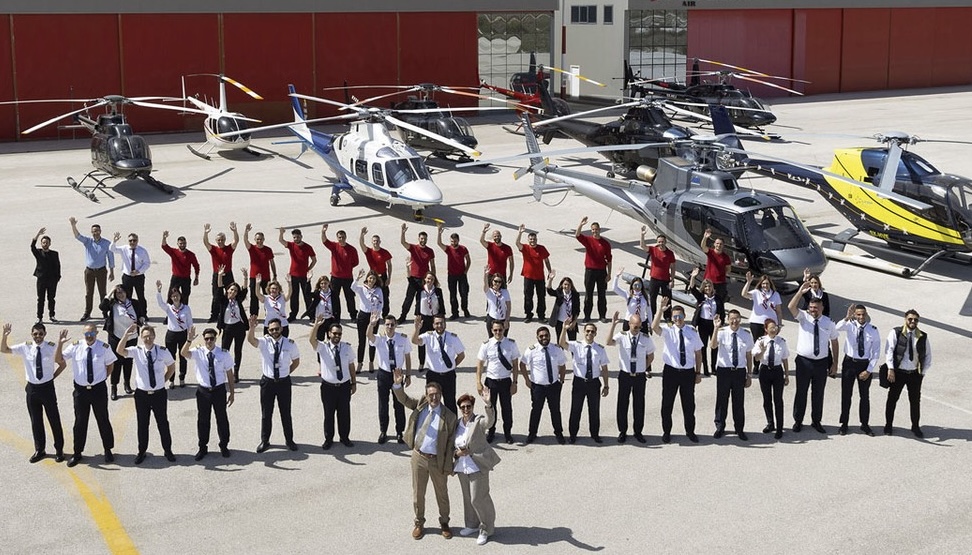
After years of dormancy, Sparti Airport is poised to reemerge as a dynamic aviation hub, backed by a strategic vision that intertwines training, entrepreneurship, and regional development.
A new partnership between the Municipality of Sparta and the aviation company SUPERIOR AIR signals a transformative chapter not only for the airport itself but for the wider Peloponnesian region. Together, they aim to establish Sparta as a key entry point for aviation education and innovation in Greece.
In a significant step forward for the area’s infrastructure and economic growth, the Sparta Municipal Council has unanimously endorsed the sublease and revitalization of the former military airport at Pyri. On July 14, 2025, Mayor Michalis Vakalopoulos formally presented the proposal, seeking authorization for the Municipality to sublease the site from the Hellenic Air Force Share Fund. The ultimate goal is to rehabilitate and reactivate the airport as a certified aviation training center, catering to both helicopter and fixed-wing aircraft pilots.
This initiative builds upon an earlier milestone achieved on July 7, 2025, when the Hellenic Air Force Share Fund approved the sublease agreement with SUPERIOR PROPERTIES, a wholly-owned subsidiary of SUPERIOR AIR. This cleared the path for legal and technical coordination with the Municipality, effectively aligning public and private interests in a mutually beneficial development project.
The overarching vision is to convert the Pyri Airport into a fully equipped, professional training center for aviators, complete with modern infrastructure and high safety standards. Beyond its educational role, the project is designed to serve as a catalyst for local economic activity, regional cooperation, and the promotion of Sparta as a strategic location for specialized aviation services.

SUPERIOR AIR, a leader in the Greek aviation industry, brings considerable experience and capacity to this venture. The company currently operates several key aviation hubs across Greece, including bases in Megara, Koropi, Mykonos, and Santorini, each equipped with operational helipads, hangars, and maintenance facilities. Their core services include:
- Charter flights and VIP transport solutions throughout Greece and neighboring countries,
- Certified flight training programs for both helicopters and airplanes,
- Comprehensive aircraft and helicopter maintenance services,
- Aerial photography, surveillance, and technical flight missions,
- Aviation consulting, sales, and aircraft brokerage services.
With its extensive operational footprint and international clientele, SUPERIOR AIR is ideally positioned to develop Pyri into a high-standard training and logistics center.
Strategic and Local Benefits
The revitalization of Pyri Airport is expected to generate far-reaching advantages, including:
-
Educational opportunities: Drawing aspiring pilots from across Greece and Europe, the center will support both private and commercial pilot training programs.
-
Local economic growth: The influx of trainees, staff, and support services will stimulate demand for housing, hospitality, and other local businesses.
-
Employment generation: New direct and indirect jobs will be created in fields ranging from flight instruction to ground services, administration, and facility maintenance.
-
Regional development: The project will position Sparta as a strategic node within Greece’s aviation ecosystem, fostering innovation and technical know-how in the region.
-
Tourism and visibility: As aviation activity increases, so too will visibility for Sparta as a destination with a rich cultural heritage and modern infrastructure.
Mayor Vakalopoulos expressed his full commitment to the project, highlighting its potential to transform the region and contribute to Greece’s broader aviation ambitions. He also extended his gratitude to former Mayor Petros Doukas, acknowledging his foundational role in initiating the negotiations and long-term planning required for such an ambitious project.
The Mayor concluded by stressing that while the vision is bold, its realization will depend on careful planning, robust technical assessments, and thorough legal procedures to ensure long-term sustainability and regulatory compliance.
